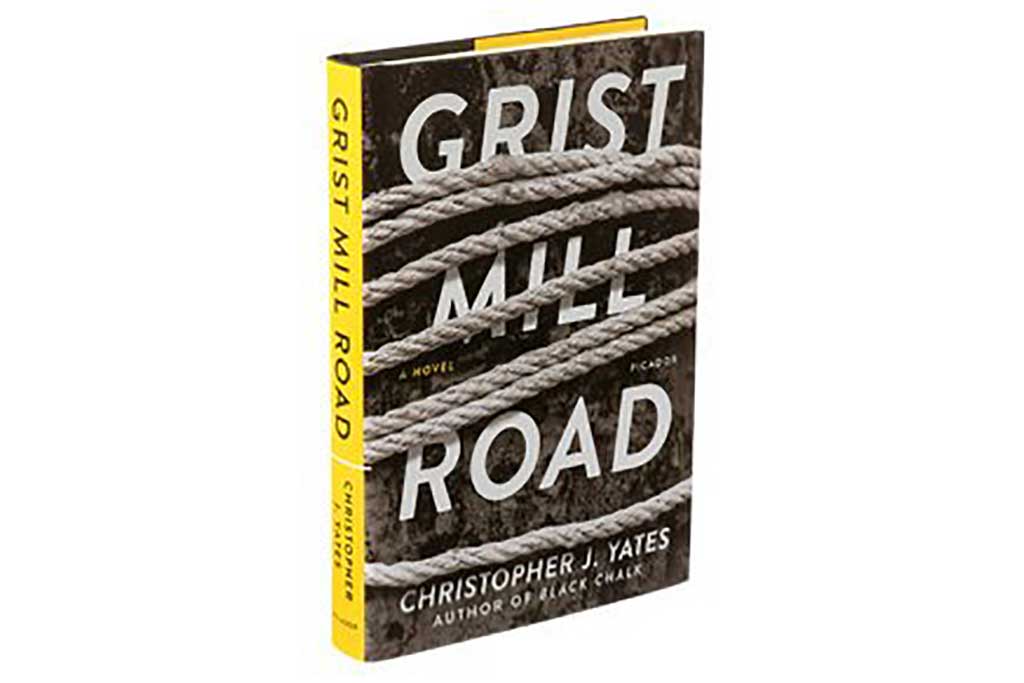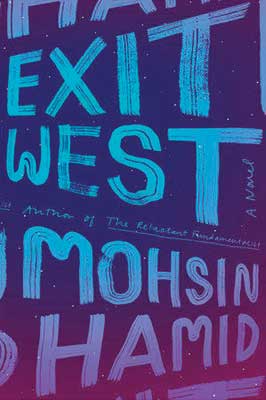
Finally available in paperback, last year’s widely lauded Exit West ($16, Riverhead Books. www.mohsinhamid.com) by Mohsin Hamid is a bittersweet and strangely uplifting novel. It evokes the contemporary world’s seemingly constant refugee crises while also using migration as a metaphor for the slow interior shifts within relationships. The dreamlike wisp of a plot follows a young couple, Saeed and Nadia, as they flee their unnamed, war-torn home country for Mykonos, then London, then California amidst surging crowds of fellow immigrants from across the globe, all searching for better lives without any clear destination in mind. In a surreal twist, these waves of seekers move from nation to nation by passing through magical portals that mysteriously appear and disappear, suggesting that Hamid is examining movement across states of mind as well as literal geography: “All over the world people were slipping away from where they had been…slipping away from other people too, people they had in some cases loved.” In this book, as on many journeys, optimism and melancholy are traveling companions.
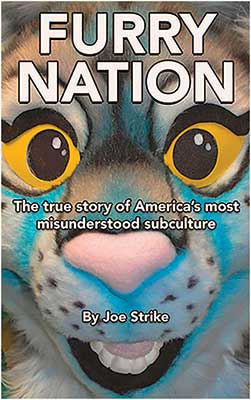
“You might be a furry if you’ve been doodling your own imaginary menagerie for years, and they all have names, personalities, and backstories…if you wonder what cartoon animals do between cartoons, or if Bugs and Daffy are secretly lovers…if you’ve always had a secret desire to wear one of those sports-team mascot suits…or if there happens to be a fox or a tiger or a wolf or a rabbit trapped inside of you, waiting to escape.” So explains Joe Strike in his extensively researched Furry Nation: The True Story of America’s Most Misunderstood Subculture (Cleis Press, $17.95. www.furrynation.com), a highly empathetic exploration of the community that first came to the attention of many non-members through a sensationally condescending Vanity Fair article back in 2001. Strike, who himself sometimes socializes in Komodo Dragon drag, offers a corrective to the mocking misperceptions of his global clan presented by that magazine piece, the tabloid TV features, and the disdainful documentaries that followed. He takes pains to explain that being a furry doesn’t imply having a sexual attraction to anthropomorphic animals. He does, however, describe members of the community—known as “the furry fandom”—as sharing an awakening that LGBT people will surely relate to: “They all experienced a similar sense of validation upon discovering the fandom: they weren’t alone. Their personal interest in something their peers wouldn’t understand or approve of didn’t isolate them from the world after all…” While Strike persuasively demonstrates that being a furry is a harmless, highly creative form of self-expression, he presents no compelling unified theory about who becomes a furry and why. Adventurous readers may enjoy the book as esoterica, but it feels written largely to build the self-esteem of its own subjects. Strike is preaching to the confuted.

Thad Vogler’s passion for unique, handcrafted spirits is evident at his San Francisco restaurants, Trou Normand and Bar Agricole. Often, when mixologists find themselves in the spotlight, they take advantage of the moment by cranking out a volume of cocktail recipes, but Vogler has taken a far more interesting approach to the barman’s book. By The Smoke & The Smell: My Search for the Rare and Sublime on the Spirits Trail ($27, Ten Speed Press. www.tenspeed.com) is a tipsy travelogue in which readers accompany the author on visits to tiny, agriculturally-rooted distilleries in France, Scotland, Ireland, Cuba, and Mexico. He describes his book as “a love letter or a treasure map, guiding you to some of the most beautiful liquids this world has to offer. Vogler’s prose is as smooth and nuanced as a fine digestif and, while introducing the reader to eccentric craftsmen and surprising insights on the creation of top notch tipples, he also drops some provocative advocacy. Why is it that so many self-proclaimed “foodies” insist that their plates be laden with the organic and artisanal but willingly fill their glasses with mass-produced booze?
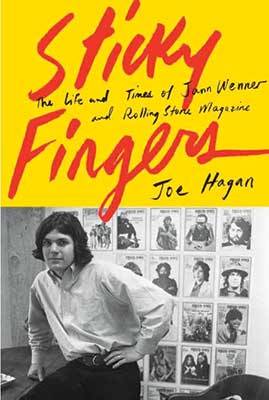
Jann Wenner, the founder of Rolling Stone is the alternately inspiring and appalling antihero of Joe Hagan’s compulsively readable biography, Sticky Fingers ($29.95, Knopf. www.joehagan.net). As Wenner steers his magazine from its hippie-influenced origins in the crucible of late 1960’s San Francisco to its recent implosion after wildly inaccurate coverage of an alleged gang rape at the University of Virginia, Hagan shows his subject to be keenly intelligent and overly indulgent in equal parts. The book observes the decades-long curdling of idealistic youth culture into cynical consumer culture: Wenner rolls with the changes, sometimes even helps instigate them, to his own advantage. Hagan doesn’t do a smear job on Wenner so much as show him in all his messy complexity: brilliant editor, relentless social climber, indulgent drug user, shrewd businessman. Now openly gay, Wenner was closeted and married throughout his magazine’s rise to prominence—the vicissitudes of his sexuality are given plenty of ink here.
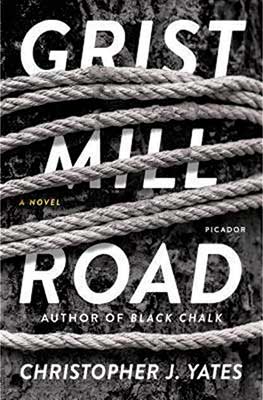
AIRPLANE READ OF THE MONTH
As a child, Patrick, one of the three main characters in this exquisitely nerve-racking novel, was nicknamed “Tricky.” That’s a fitting description for the entirety of Christopher Yates’ Grist Mill Road ($26, Picador. www.christopheryates.com), which takes a series of sharp unexpected turns along its white-knuckle route. As teenagers in a small upstate New York town, Patrick, Matthew and Hannah are bound to each by a grisly act of violence. That hellish, flinch-inducing scene opens the book but remains incomprehensible until the revelations of the stunning, sorrowful final chapters. While the novel as a whole contains little additional physical violence, readers, like the characters, will carry the impact of the book’s first scene with them, its psychological resonance haunting the narrative. Yates’ intricate plotting is accompanied by acutely sensitive characterization, particularly in his rendering of Patrick’s mid-life bouts with depression and paranoia: “He must keep himself busy, busy, busy, because if he stops moving, everything will be over…to be in a room with another person doing nothing feels like meditation, to be idle in a room all alone feels like disease.” Complex tangles of guilt, sexuality, and trauma thread through the subconscious minds of the trio as they grow into adulthood and ultimately reunite, with devastating results.


